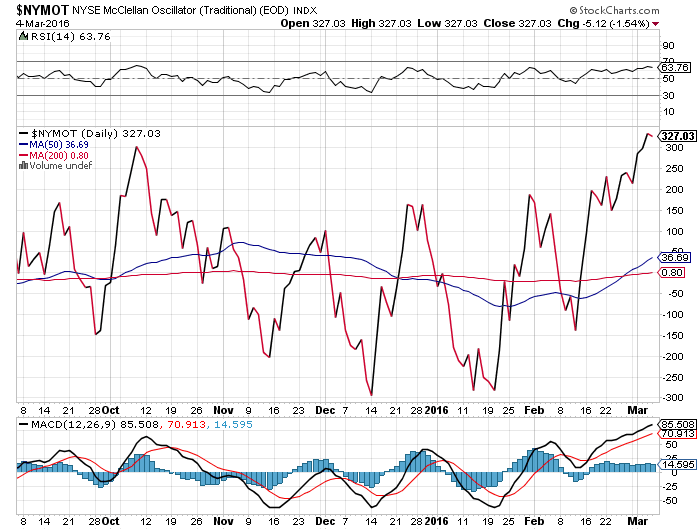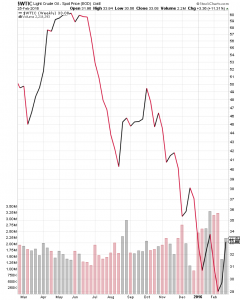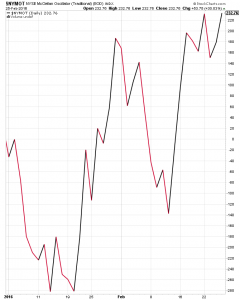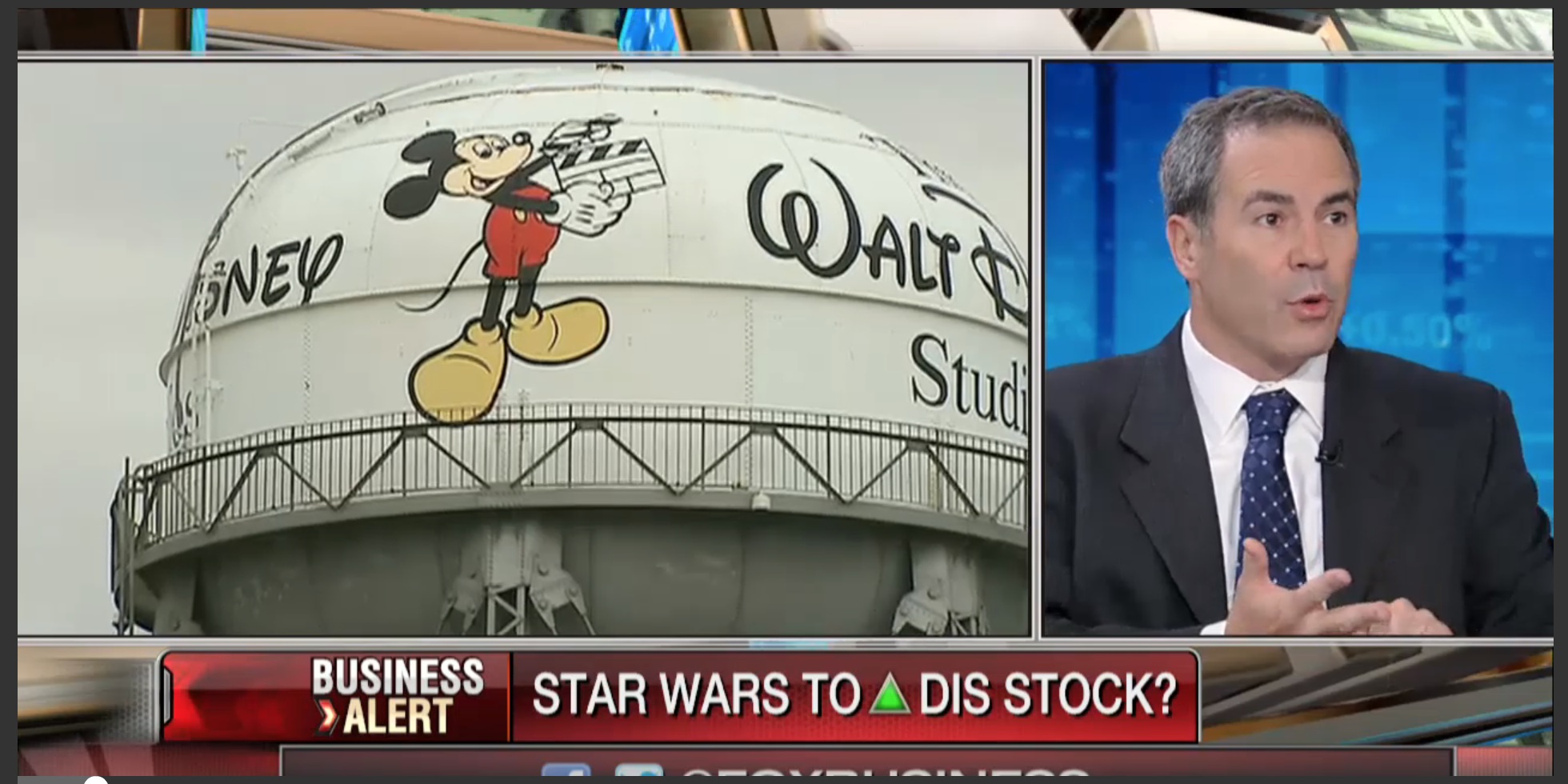It has been a busy week with several hundred earnings reports and a plethora of economic data that continues to point to a slowing in the domestic services economy as the domestic manufacturing economy flirts with a recession. The market continues to grapple with matching the economic reality with slower growth prospects for companies.
We’ve sat on the sidelines these last few weeks savoring the dividend side of our Tematica Select List, but I have been building our shopping list. As earnings start to wane in the coming weeks, and we get ready to act on that growing shopping list, I’ll continue to watch the economic data to avoid any pitfalls if company expectations need to be revised lower yet again.
In the last two weeks, we’ve had nearly all of our recommended companies report their December-quarter results, so I felt a recap was in order:
American Capital Agency Corp. ([stock_quote symbol=”AGNC”]) — Earlier this week, the company reported December-quarter results that fell shy of expectations and came in at $0.54 per share, a $0.03-per-share miss. Book value continued to dip and slipped to $22.59 per share at the end of the quarter, down $0.41 per share compared to the end of the September quarter. Given the deep discount to book value, AGNC repurchased $161 million, or 2.6%, of its outstanding common stock during the quarter. Management stated that if current conditions persist and the shares continue to trade at such a “significant discount,” the company would continue to actively buy back shares. While green shoots are appearing in the company’s core MBS business, the continued drop in 10-year Treasury yields has been a boon to real estate investment trusts (REITs) and other high-yielding securities. With more economic data pointing toward a dramatic slowdown, I see investors continuing to shift toward stocks such as AGNC. Given all of that and the current dividend yield of 14%, AGNC shares are a buy at current levels.
AT&T ([stock_quote symbol=”T”]) — This telecommunications company reported December-quarter results that were largely in line with expectations. I continue to see the company’s wireless offerings as very inelastic and I confirmed this with a poll among my undergraduate and graduate students now that the spring semester is underway. Nearly all of my students said they would trade eating out, buying shoes or some other purchase if it meant having enough money to pay their mobile phone bill. Should the economy continue to slow, the nature of AT&T’s business and its current 5.2% dividend yield make the shares a must-own.
Philip Morris International ([stock_quote symbol=”PM”]) — Earlier today, Philip Morris reported December-quarter earnings of $0.80 per share vs $1.03 a share in the same quarter a year ago. Excluding non-recurring items, however, earnings for the quarter were in line with expectations of $0.81 for the quarter. As expected, revenues continue to be on a slow glide lower, but the company continued to take share during the quarter as it leveraged its key brands, including Marlboro, L&M, Parliament and others. Like many domestic companies that derive a meaningful portion of their revenue from outside the United States, persisting currency headwinds will weigh on the reported results. As such, we will need to dig into the results to better understand the true health of the business. While the company’s 2016 earnings guidance of $4.25-$4.35 per share is below consensus expectations of $4.42 per share, it also forecasts $0.60 per share in expected currency headwinds. That’s a big adjustment in foreign exchange headwinds compared to the impact of $0.27 per share that the company forecasted would impact 2016 this past October. I suspect analysts’ models were not updated in the last few months to account for currency. Adjusting for that, earnings are slated to grow 10-12% in 2016, not fall as the headlines would suggest. To me, that means the odds of another dividend bump in 2016 are looking rather good. You should continue to hold your PM shares.
Physicians Realty Trust ([stock_quote symbol=”DOC”]) — During its December-quarter results, the company shared that it acquired 19 healthcare properties in 11 transactions, as well as three condominium units located in 11 states for an aggregate of $142.6 million. To me, this means despite the current tone of the economy or even the volatility of the stock market, Physicians Realty continues to execute on its business model. As it chewed through those transactions, the company reloaded its transaction gun with an upsized offering of 18.5 million shares that added roughly $290 million to its coffers. As the company continues to execute, we will benefit from the dividend policy associated with its REIT structure. You should continue to hold your DOC shares.
PayPal Holdings, Inc. ([stock_quote symbol=”PYPL”]) — Our Cashless Consumption play, PayPal, saw its shares soar 21% in the last two weeks following better-than-expected December-quarter results on both the bottom and top lines. More specifically, PayPal delivered earnings per share (EPS) of $0.36, $0.02 ahead of consensus expectations, on $2.56 billion in revenue (ahead of the $2.51 billion consensus expectation). While the company’s guidance is in line with Wall Street expectations for the current quarter, that performance should not go unappreciated in light of the current environment. I continue to see PayPal taking market share as payments shift online and onto mobile devices. That behind-the-scenes business powers Apple Pay, Uber and other companies that are humming. Given the company’s pure play status for my Cashless Consumption investing theme and the tailwind at its back, I’m not surprised that RBC Capital Markets reiterated its outperform rating and $42 price target on the shares and that Wedbush upgraded its view on PayPal to Outperform from Neutral with a new $40 price target. We’re up more than 11.5% in PYPL shares. Given this volatile market, let’s be prudent and set a protective stop loss at $31 with a goal of stepping it up as PYPL shares move higher.
ProShares Short S&P 500 ETF ([stock_quote symbol=”SH”]) — Over the last week, our SH shares have moved up, down and sideways in response to the moves in the S&P 500. With more data pointing toward a manufacturing recession and far slower growth in the services sector, I see further negative revisions to 2016 earnings expectations for the S&P 500 group of companies. Let’s continue to keep this insurance position in place for the time being.
Regal Entertainment Group ([stock_quote symbol=”RGC”]) — While the stock market may be turbulent, the movie box office is off to a strong start in 2016. Year to date, the box office is up 2% year over year and up double-digit percentages compared to prior years. I chalk this is up to follow-through on Star Wars: The Force Awakens, but also a strong showing for Ride Along 2, 13 Hours: The Secret Soldiers of Benghazi and Kung Fu Panda 3. It seems there is something for everyone, including us with The Big Short, which I highly recommend. With tickets up, sales of high-margin snacks and drinks are sure to follow. Regal Entertainment reports its quarterly results next Tuesday (Feb. 9) and you should hold your shares heading into that event.
I’ll have much more for you next week, when I will be trying to finalize the next issue of your newsletter. I’m already working on it and I’m including a number of data points coming out of December-quarter earnings conference calls that confirm our thematic investing perspective is identifying the right tailwinds, as well as the latest economic data that will shape the market and expectations in the coming weeks.














